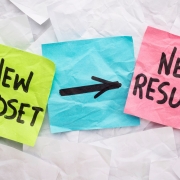Navigating Puberty: A Guide for Teen Girl Athletes
Puberty is a natural journey of transformation that every teenager experiences, bringing both exciting and challenging changes. For teen girl athletes, understanding these changes is crucial for maintaining peak performance and overall well-being. In this blog, we’ll explore the impacts of puberty on athletic performance, emotional experiences, and recovery practices tailored to the unique needs of young female athletes.
Understanding Puberty’s Impact on Athletic Performance
Puberty involves hormonal changes that lead to physical and emotional transformations. For girl athletes, this can mean growth spurts, body composition changes, and the onset of menstruation. While these changes are a natural part of development, they can temporarily affect coordination, balance, and muscle strength. However, it’s important to emphasize that every individual’s experience is unique, and with proper support, athletes can continue excelling in their sports during puberty.
-
Coping with Puberty:
-
Education and Awareness:
- Understand that puberty affects individuals differently.
- Coaches, parents, and athletes should be aware of potential impacts on training and performance.
- Seek guidance from medical professionals or sports specialists.
-
Supportive Environment:
- Maintain a positive and supportive environment.
- Focus on overall well-being and development.
- Encourage open communication between athletes, coaches, and parents.
-
Emotional Experiences During Puberty
Emotions play a significant role in the life of a teenage girl athlete, especially during their period. Hormonal fluctuations can lead to mood swings, emotional sensitivity, and coping with discomfort. To navigate these emotional experiences, building a support system, practicing self-care, and finding healthy coping mechanisms are essential.
-
Coping with Emotional Challenges:
-
Acknowledgment of Emotions:
- Accept and acknowledge emotions without judgment.
- Recognize that emotional experiences are a natural part of the human journey.
-
Building a Support System:
- Create a network of supportive friends, family, coaches, or teammates.
- Share feelings with trusted individuals to alleviate emotional burdens.
-
Self-Care Practices:
- Engage in intentional self-care activities for physical, mental, and emotional well-being.
- Prioritize activities that promote relaxation, stress reduction, and overall health.
-
Healthy Coping Mechanisms:
- Identify and adopt healthy ways to manage and express emotions.
- Utilize activities such as journaling, deep breathing, mindfulness, or creative outlets.
-
Communication with Coaches:
- Openly communicate emotional challenges with coaches.
- Coaches can provide support, guidance, and potentially modify training plans if necessary.
-
Professional Help if Needed:
- If emotional well-being significantly impacts daily life, consider seeking support from mental health professionals.
-
Recovery Strategies for Teen Girl Athletes
Recovery is a vital component of any athlete’s routine, and for teen girls, it involves physical, psychological, and nutritional aspects. Prioritizing rest, hydration, nutrition, and incorporating injury prevention strategies contribute to overall well-being and sustained athletic performance.
Training During Your Period: Tips and Considerations
Training during your period requires a personalized approach. Listening to your body, staying hydrated, fueling properly, modifying intensity, and emphasizing recovery are key considerations. Open communication with coaches and healthcare professionals ensures a supportive environment tailored to individual needs.
• Coping with Menstruation:
-
Listening to Your Body:
- Pay attention to how you feel during your period.
- Modify training intensity or take rest if needed.
-
Hydration and Nutrition:
- Stay well-hydrated and maintain a balanced diet.
- Proper nutrition supports energy levels and aids in recovery.
-
Adjusting Intensity:
- Modify workout intensity or duration based on comfort and energy levels.
-
Emphasis on Recovery:
- Prioritize recovery techniques like stretching, foam rolling, or light yoga.
-
Discomfort Management:
- Use over-the-counter pain relievers or menstrual products as needed.
- Consult healthcare professionals for personalized advice.
Training When Emotional: Tips for Emotional Well-being
Being a teen athlete comes with emotional ups and downs. Acknowledging emotions, building a support system, practicing self-care, finding healthy coping mechanisms, and communicating with coaches contribute to a healthy emotional balance.
Adjusting Training Based on Menstrual Cycle
While there’s no one-size-fits-all answer, adjusting training based on the menstrual cycle is an option. Listening to your body, adjusting intensity and volume, prioritizing recovery, managing discomfort, tracking your cycle, and communicating with your coach create a holistic approach to training.
The Importance of Recovery Practices
Recovery for teen girl athletes encompasses physical, psychological, and nutritional aspects. Adequate rest, psychological well-being, nutritional support, injury prevention, and quality sleep contribute to optimal recovery and sustained athletic development.
-
Recovery Practices for Teen Girl Athletes:
-
Physical Recovery:
- Emphasize rest, hydration, nutrition, and sleep for energy replenishment and muscle repair.
- Incorporate active recovery exercises.
-
Psychological Recovery:
- Use mindfulness, relaxation exercises, and positive visualization to manage stress.
- Seek support from coaches, parents, or mental health professionals.
-
Nutritional Recovery:
- Consume a balanced diet to support growth, development, and athletic performance.
-
Injury Prevention and Rehabilitation:
- Follow structured rehabilitation programs for injuries.
- Gradual return-to-play protocols for rebuilding strength and flexibility.
-
Rest and Sleep:
- Prioritize consistent sleep patterns and healthy sleep habits.
-
Why Learning Self-Care Matters for Girl Teen Athletes
Self-care is not a luxury but a necessity for teen girl athletes. It promotes physical well-being, mental and emotional balance, the ability to balance responsibilities, prevention of burnout, and the development of lifelong healthy habits.
-
Importance of Learning Self-Care:
-
Physical Well-being:
- Promotes physical recovery and injury prevention.
- Mental and Emotional Well-being:
- Manages stress, boosts confidence, and maintains a positive mindset.
-
Balancing Responsibilities:
- Helps in balancing academics, sports, and social commitments.
-
Preventing Burnout:
- Prevents exhaustion and supports long-term athletic engagement.
-
Developing Lifelong Habits:
- Instills healthy habits for overall well-being throughout life.
-
Empowerment:
- Empowers athletes to prioritize their well-being and set a positive example.
-
In conclusion, puberty is a transformative journey for teen girl athletes, and understanding its impact is essential for sustained athletic excellence. By embracing the changes, prioritizing emotional well-being, and incorporating personalized recovery and self-care practices, young female athletes can navigate this stage with confidence and resilience.




















